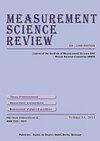An Integrated Testing Solution for Piezoelectric Sensors and Energy Harvesting Devices
IF 0.8
4区 工程技术
Q4 INSTRUMENTS & INSTRUMENTATION
引用次数: 2
Abstract
Abstract With the fast growth of wireless communications between nodes and sensor units and the increase of devices installed in remote places, and the development of IIoT applications, new requirements for power energy supply are needed to assure device functionality and data communication capabilities during extended periods of time. For these applications, energy harvesting takes place as a good solution to increase the autonomy of remote measuring solutions, since the usage of conventional power supply solutions has clear limitations in terms of equipment access and increased maintenance costs. In this context, regenerative energy sources such as thermoelectric, magnetic and piezoelectric based, as well as renewable energy sources, such as photovoltaic and wind based, among others, make the development of different powering solutions for remote sensing units possible. The main purpose of this paper is to present a flexible testing platform to characterize piezoelectric devices and to evaluate their performance in terms of harvesting energy. The power harvesting solutions are focused on converting the energy from mechanical vibrations, provided by different types of equipment and mechanical structures, to electrical energy. This study is carried out taking into account the power supply capabilities of piezoelectric devices as a function of the amplitude, frequency and spectral contents of the vibration stimulus. Several experimental results using, as an example, a specific piezoelectric module, are included in the paper.压电传感器和能量采集设备的集成测试解决方案
摘要随着节点和传感器单元之间无线通信的快速增长,安装在偏远地区的设备的增加,以及IIoT应用的发展,需要对电力能源供应提出新的要求,以确保设备在长时间内的功能和数据通信能力。对于这些应用,能量收集是提高远程测量解决方案自主性的一个很好的解决方案,因为传统电源解决方案的使用在设备访问和增加维护成本方面有明显的局限性。在这种情况下,基于热电、磁性和压电的再生能源,以及基于光伏和风能等可再生能源,使开发不同的遥感单元供电解决方案成为可能。本文的主要目的是提供一个灵活的测试平台来表征压电器件,并评估其在收集能量方面的性能。电力收集解决方案专注于将由不同类型的设备和机械结构提供的机械振动的能量转换为电能。这项研究是在考虑压电器件的供电能力作为振动激励的振幅、频率和频谱内容的函数的情况下进行的。本文以一个特定的压电模块为例,给出了几个实验结果。
本文章由计算机程序翻译,如有差异,请以英文原文为准。
求助全文
约1分钟内获得全文
求助全文
来源期刊

Measurement Science Review
INSTRUMENTS & INSTRUMENTATION-
CiteScore
2.00
自引率
11.10%
发文量
37
审稿时长
4.8 months
期刊介绍:
- theory of measurement - mathematical processing of measured data - measurement uncertainty minimisation - statistical methods in data evaluation and modelling - measurement as an interdisciplinary activity - measurement science in education - medical imaging methods, image processing - biosignal measurement, processing and analysis - model based biomeasurements - neural networks in biomeasurement - telemeasurement in biomedicine - measurement in nanomedicine - measurement of basic physical quantities - magnetic and electric fields measurements - measurement of geometrical and mechanical quantities - optical measuring methods - electromagnetic compatibility - measurement in material science
 求助内容:
求助内容: 应助结果提醒方式:
应助结果提醒方式:


